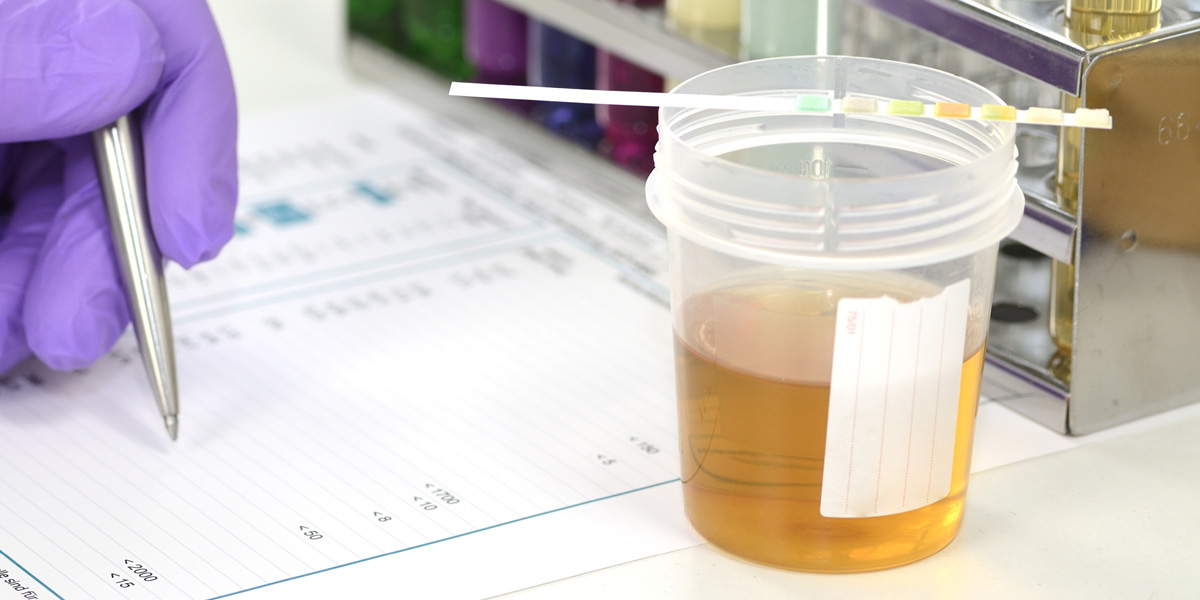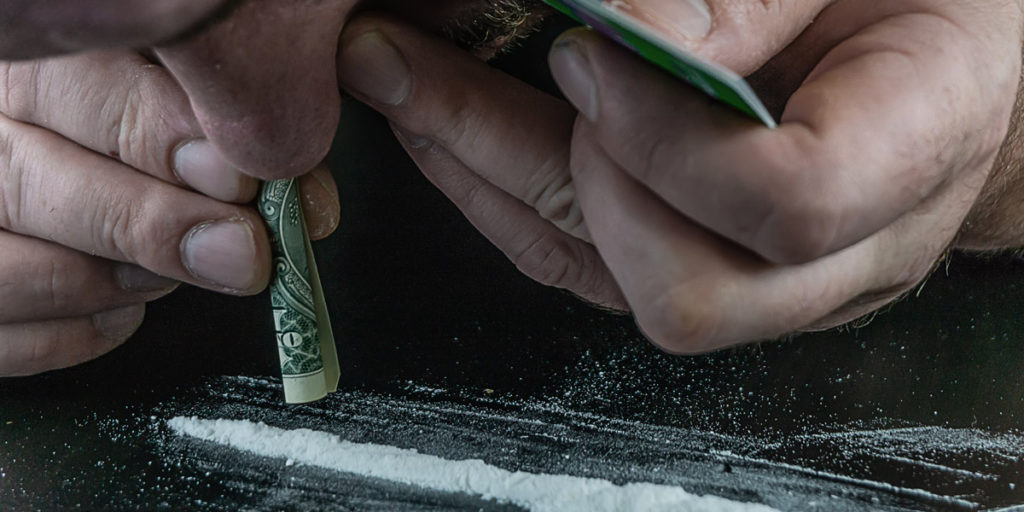How Long Does Cocaine Stay in Your System?

The length of time it takes cocaine to leave your body is not precise. This is because many variables determine how long cocaine (also known as coke, white, flake, and snow) stays in your system, including purity level, how often you use, how you use, and other factors.
The half-life of cocaine is short, one hour, which means it takes that long for half of the cocaine to eliminate itself from the body.
But even though cocaine can leave your system in about an hour, benzoylecgonine, cocaine’s active metabolite, can last in the body for a long time. For example, in extreme cases, heavy users still had benzoylecgonine present in their system 21 days after cocaine use. For this reason, it is the indicator for cocaine use in various drug testing methods.
Cocaine in Your Blood, Urine, Saliva, and Hair
Blood
Cocaine stays in your blood for 12 hours and benzoylecgonine for 48 hours.
Drug tests are rarely done through blood work. Blood tests are typically only used in the hospital or if a healthcare provider suspects drug use.
Urine
Generally, cocaine is absent from the body within 24 hours. However, a urine screening can detect cocaine metabolites for about one to three days after use. Also, detection times have been reported to vary significantly between individuals. For instance, one subject in a medical study had cocaine, not only its metabolites, detectable for almost six days.
A urine drug screen, or urine test, is the most common drug test for cocaine detection.
Saliva
Cocaine metabolites in saliva can be detected for up to two days after use.
An oral fluid drug test, sometimes called mouth swab test or saliva test, is the most practical drug screening method. Cocaine concentrations in the saliva are typically related to content in the blood. As a result, drug metabolites decrease in the same time frame.
Hair
Hair analysis for drug use can usually detect cocaine metabolites in the hair follicle for up to three months.
How Long Does Cocaine Take to Kick In?
You can feel cocaine’s effects almost instantly after a single dose. The intensity of cocaine’s results and how long it lasts essentially depends on the method of use.
When cocaine is snorted or taken orally, such as rubbing it onto your gums, you can feel the high come on gradually within minutes. However, if you smoke or inject it, it hits you in seconds.

How Long Do the Effects of Cocaine Last?
The effects of cocaine can last a couple of minutes or up to an hour.
The quicker cocaine absorbs into the bloodstream, the more potent the resulting high will be, but the shorter its duration. So, for instance, smoking and injecting cocaine results in a stronger but shorter-lasting high than snorting.
Snorting cocaine brings on a progressive high but may last 15 to 30 minutes. While smoking cocaine is an immediate high that may only last 5 to 10 minutes.
Short-Term Effects
Some people find themselves abusing cocaine because they perform simple obligations quicker. Other short-term effects of cocaine use involve:
- Intense happiness
- Accelerated energy
- Hypersensitivity to sight, touch, and sound
- Paranoia
- Irritability
- Constricted blood vessels
- Dilated pupils
- Nausea
- Fast or irregular heartbeat
- Tremors or muscle twitches
- Increased body temperature and blood pressure
- Restlessness
Long-Term Effects
The long-term effects of cocaine use are mainly dependent on the method of use and how often, but do include:
- Snorting – loss of smell, nosebleeds, constant runny nose, difficulty with swallowing
- Smoking – cough, asthma, respiratory issues, and increased risk of pneumonia
- Oral – critical loss of blood flow to the intestines causing bowel decay
- Injecting – higher risk of developing HIV, hepatitis C, skin or soft tissue infections, and collapsed veins.
It can also cause anorexia, insomnia, seizures, elevated risk of stroke and heart attack, irregular heart rhythms, and a reduced attention span.
What Factors Affect How Long Cocaine Stays in Your System?
Factors that affect how long cocaine stays in your system include:
How You Use
The method of using cocaine— smoking, snorting, oral, or injecting, impacts how long it lasts in your system. Typically, the faster your body absorbs and metabolizes cocaine, the quicker it eliminates itself from the body. Thus, injecting and smoking cocaine have a shorter detection time than snorting it.
How Often and How Much You Use
The length of time it takes for cocaine to eliminate itself from the body with chronic cocaine users is considerably longer than moderate users. This is because when you use cocaine constantly, its metabolites remain in your system, stopping the body from eliminating it effectively.
Also, dosage is an essential factor. The larger the amount, the longer it will stay in your system.
What Other Substances You Use
When you combine cocaine use and other drugs, especially alcohol, it can slow down excretion from the body.
Drinking and using cocaine at the same time produces a unique cocaine metabolite, cocaethylene, another of cocaine’s significant metabolites. Unlike benzoylecgonine, cocaethylene is an active metabolite with a longer half-life than cocaine, allowing it to stay in your system longer.
The Level of Purity
The purity level of cocaine can affect how potent it is. Therefore, it directly affects how long the cocaine and its metabolite, benzoylecgonine, is eliminated from the body.

Can You Overdose on Cocaine?
Yes, you can overdose on cocaine, and it can be fatal. Death from an overdose can happen at the first time using or anytime suddenly after that. Many people who abuse cocaine also use other drugs simultaneously, which puts them at extreme risk for overdose.
Unfortunately, cocaine is one of the most addicting drugs in the U.S., and cocaine abuse is a severe public health problem. Furthermore, cocaine doesn’t have an approved Food and Drug Administration (FDA) medication for withdrawal, relapse prevention, or overdose.
Cocaine Overdose Symptoms
A cocaine overdose, or cocaine toxicity, can have the following symptoms:
- Chest pain
- Difficulty breathing
- Hallucinations
- Blurred vision or vision loss
- Diarrhea, vomiting, abdominal pain
- Seizure
- High blood pressure
- Acute agitation, anxiety, confusion
Getting Help for Cocaine Addiction
Unaware, most people using cocaine don’t think they have an addiction. But even the casual user is facing a serious risk.
Although there aren’t any FDA-approved medications to treat cocaine use disorder, the National Institute on Drug Abuse (NIDA) acknowledges behavioral therapy as an effective treatment. Behavioral therapies include cognitive behavioral therapy and 12 Step programs. Northridge Addiction Treatment Center is proud to offer these proven, evidence-based treatment programs. If you or a loved one has been struggling with using cocaine regularly, there is help available.
Find Meaningful Recovery
Our caring and compassionate specialists are eager to help you comfortably navigate this journey to recovery. Our individualized treatment plan, programs, and therapies may be a perfect match for you or your loved one. Let us assist you in living the happy life you deserve. It starts with a phone call.




